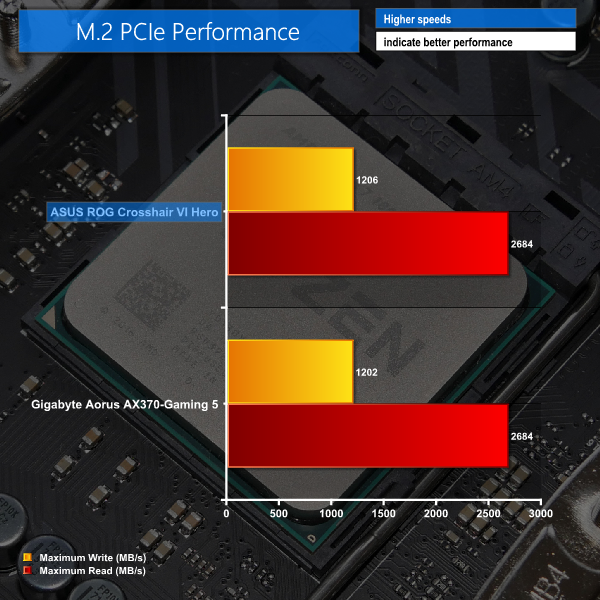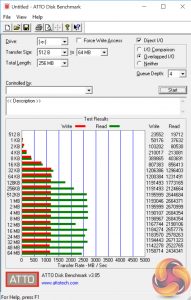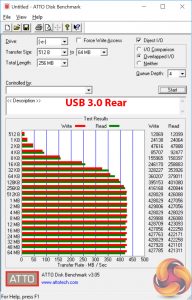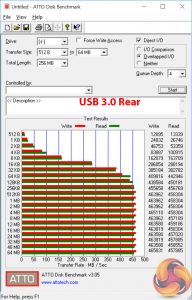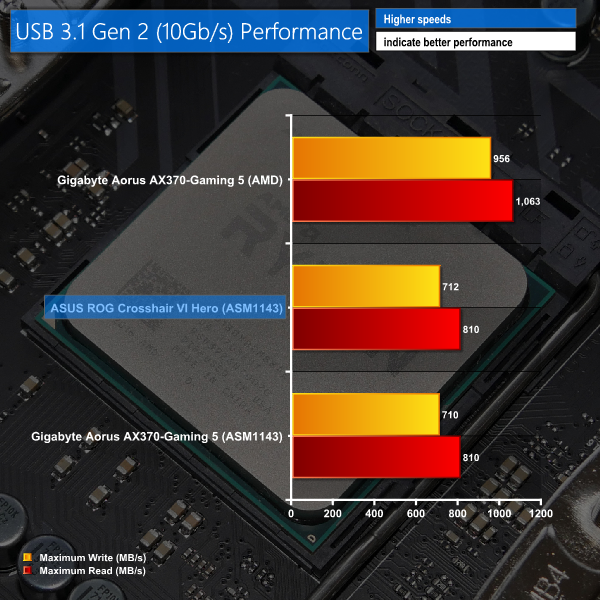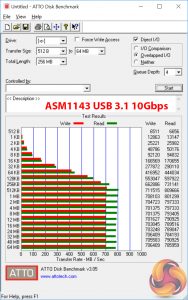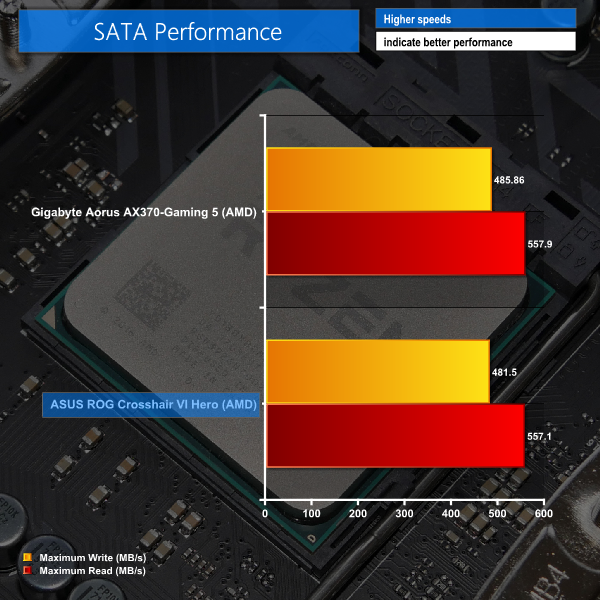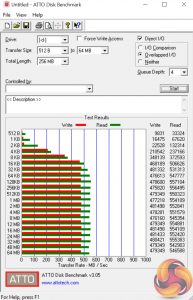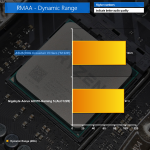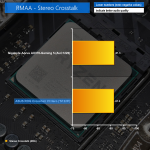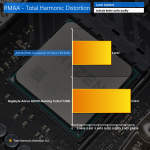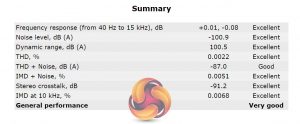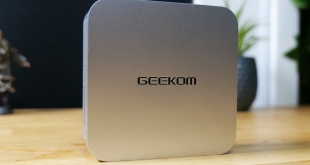ATTO Disk Benchmark
The ATTO disk benchmark is a Windows-based utility for testing storage performance of any storage drive or controller. We use the default benchmark setup.
M.2 PCIe Performance
For M.2 testing we use a Toshiba OCZ RD400 256GB M.2 PCIe NVMe SSD.
M.2 PCIe NVMe SSD performance is as good as we would expect from our Toshiba OCZ RD400. ASUS does not provide any form of cooling hardware for the M.2 SSD which means that our drive hits 75°C just in the short space of time it takes to run the ATTO disk benchmark.
With longer sustained write workloads, it is likely that the SSD will thermally throttle due to minimal consideration being given to cooling by ASUS.
USB 3.0 Performance
We test USB 3.0 performance using a pair of Corsair Force LE 120GB SSDs in RAID 0 connected to an Icy Box RD2253-U31 2-bay USB 3.1 enclosure powered by an ASMedia ASM1352R controller.
Four of the rear-mounted 5Gbps USB 3.0 ports are fed directly from the Ryzen processor whereas the other four are delivered via the X370 chipset. ASUS does not distinguish between these ports in the user manual and they are all coloured the same shade of blue.
Our testing shows that the ports nearest to the Ethernet port are slightly faster at around 460MBps top speed versus around 430MBps for the other ports.
USB 3.1 Performance
We test USB 3.1 performance using a pair of Corsair Force LE 120GB SSDs in RAID 0 connected to an Icy Box RD2253-U31 2-bay USB 3.1 enclosure powered by an ASMedia ASM1352R controller.
ASUS has chosen to deploy the pair of X370 chipset-based 10Gbps USB 3.1 connections as an internal header. This allows the pair to be used with a compatible chassis but it also inhibits our ability to test their speed (as we do not have said compatible chassis).
The 10Gbps USB 3.1 Gen 2 ports on the rear panel deliver around 700-800MBps sequential transfer speeds due to the use of ASMedia's last-generation ASM1143 PCIe 2.0 x2 chipset. The newer PCIe 3.0 x2 ASM2142 USB 3.1 Gen 2 chipset found on many Z270 motherboards would have been preferable but AMD's use of Gen 2 PCIe lanes on the chipset, rather than Gen 3 like Z170 and Z270, is to blame.
If you want the fastest possible USB 3.1 speeds, look for the chipset-specific ports instead of ones delivered by a host controller from the likes of ASMedia.
SATA 6Gbps Performance
For SATA 6Gbps testing we use a SK Hynix SE3010 960GB SSD.
SATA 6Gbps performance shows no cause for concerns.
Audio
Rightmark Audio Analyser is a freeware benchmarking utility designed to objectively test the performance characteristics of audio solutions. We setup a line-in line-out loop and execute the record/playback test before generating the results report you see below. A sampling mode of 24-bit, 192 kHz was tested.
ASUS' ‘S1220'-based SupremeFX audio system delivers very strong results, according to RMAA.
Be sure to check out our sponsors store EKWB here
 KitGuru KitGuru.net – Tech News | Hardware News | Hardware Reviews | IOS | Mobile | Gaming | Graphics Cards
KitGuru KitGuru.net – Tech News | Hardware News | Hardware Reviews | IOS | Mobile | Gaming | Graphics Cards


